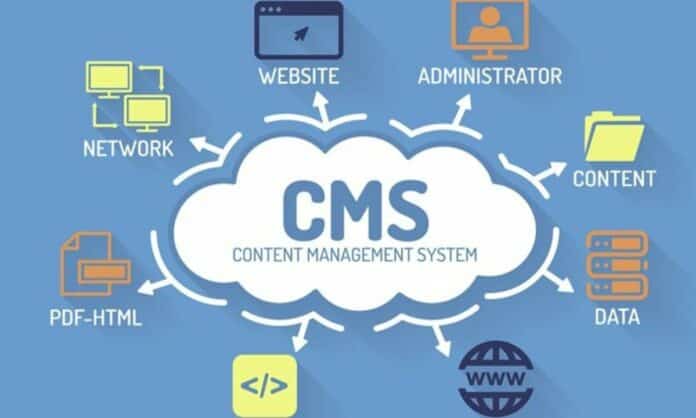A content management system (CMS) is a web application that allows users to create, edit, and maintain a website or a subsection of it. It is a web design tool that can be used by non-technical users.
The most common CMS is used to create blogs and online stores. The most popular is probably WordPress, but there are many other CMS. In this article, we will take a closer look at all the popular CMS that will help you in your work.
WordPress
WordPress is the most popular CMS. It’s free and based on PHP and is estimated to be used by about 20% of websites. Originally a simple blogging tool, WordPress has become the CMS of choice in the SEO community and among online marketing professionals.
Free and easy to set up thanks to a one-click install tool, WordPress plays very well with SEO positioning and is flexible with the thousands of plugins you can use in it. There are thousands of pre-designed templates for you to choose from so you can jump in the pool with them. In addition, there is a large user community that provides support and deepens knowledge very easily.
WordPress does not have a built-in eCommerce option, but there are various plugins for it, such as WooCommerce. WordPress can also be used for affiliate websites or online communities.
The disadvantage is the lack of official technical support. You will need to take care of regular maintenance and update everything related to security in order not to suffer from hackers.
Joomla
Let’s start with the fact that Joomla is a very powerful tool. It’s more complex than WordPress but potentially has more uses and is very handy for both internal and external websites. This is probably a CMS more focused on companies than newbies. It is also very effective in terms of social aspects, which is interesting if you want to create an attractive social media-inspired website.
As with WordPress, Joomla has a 1-click installation in your control panel. It has e-commerce features so there is no need to buy special add-ons or plugins for it. There is a large community of users providing support and quite a lot of documentation on it. It also has thousands of preconfigured extensions to add more features.
The downside is that it is more complex than WordPress and not a good option for entry-level users. Since Joomla is not as popular as WordPress, the development fee for this CMS is higher, so your technical support costs will be higher. In addition, there are several pre-made templates to choose from. If you are just getting started, Joomla is probably not the ideal tool for you.
Drupal
Drupal is a CMS with very high-security scores. Based on PHP, open source and free, it can be installed with a 1-click application from your hosting control panel.
Drupal is extremely flexible, but the cost is high. It is a more complex CMS than WordPress and Joomla. It offers an excellent level of security, so if this is an important issue for your business, this is the most logical option.
It’s really scalable and probably more suited to large businesses than startups or small businesses.
WooCommerce
If you want to stay on WordPress but want to sell online, WooCommerce is the most compelling option. It’s free and can be easily installed using a WordPress plugin.
One of its strengths is that it adapts very well to mobile devices and has many attractive themes to choose from. The technical support is provided through a large and active community, and because it is based on WordPress, it ranks very highly in terms of SEO.
It’s highly scalable, but to get the most out of WooCommerce, you may need some payment plugins.
To choose the right CMS for your business, we recommend starting with your requirements and needs. Thus, you can choose the perfect option for yourself.

















